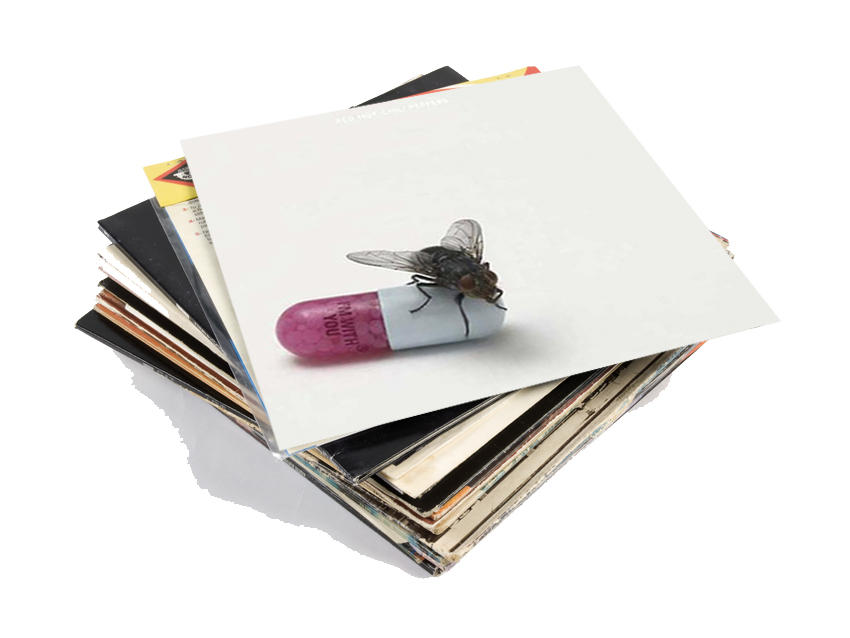
Red Hot Chili Peppers: I'm With You
When John Frusciante quit the Red Hot Chili Peppers for the second and apparently final time in 2009, many fans wondered if the guitarist’s departure signaled the death knell for the multi-platinum funk-rock superstars.
Such fears can be put to rest with the release of the band’s tenth album I’m With You, on which Josh Klinghoffer firmly establishes himself as the world’s newest guitar hero.
Give it up for this guy: Although most axe slingers would have given their eyeteeth to join a big-time (and big paying) band like the Peppers, they would just as surely blown it by overplaying or underplaying their hands, piling on rock clichés or attempting to be Frusciante clones.
By being his own man, Klinghoffer strikes the right balance, making his presence felt by following his heart while not betraying the true sound and spirit of the group.
Sure, he’s obviously influenced by The Edge and Andy Summers (just as Frusciante was by Jimi Hendrix and Frank Zappa), but Klinghoffer is also a singular talent, ruled by a quest for pure sound and emotion. Like The Edge when he first appeared on the scene, he’s a newfangled sonic Jackson Pollock, splattering his canvas with hunger and spirit, ready to make a mark - his own mark.
Not to imply that the rest of the band are mere pikers; in fact, throughout much of I’m With You, the core of the Peppers – bassist Flea, drummer Chad Smith and frontman Anthony Kiedis – perform with a gusto not heard since their 1991 breakthrough, Mother’s Milk. Whether the new kid on the block had anything to do with their rebirth doesn’t really matter; in the end, it’s results that count.
A marked sense of maturity permeates the 14-song set, which sees the group tackling countrified ballads, garage rock, ‘70s disco and variations on funk (of course) with equal parts reverence and a need to reinvent. Even Kiedis, who does occasionally lapse into his love-it-or-hate-it nursery rhythm-like rap style, seems imbued with restraint and taste, pondering mortality and purpose throughout much of I’m With You.
UPDATE: The album is now streaming in its entirety, for free, via iTunes: I'm With You, Red Hot Chili Peppers iTunes stream
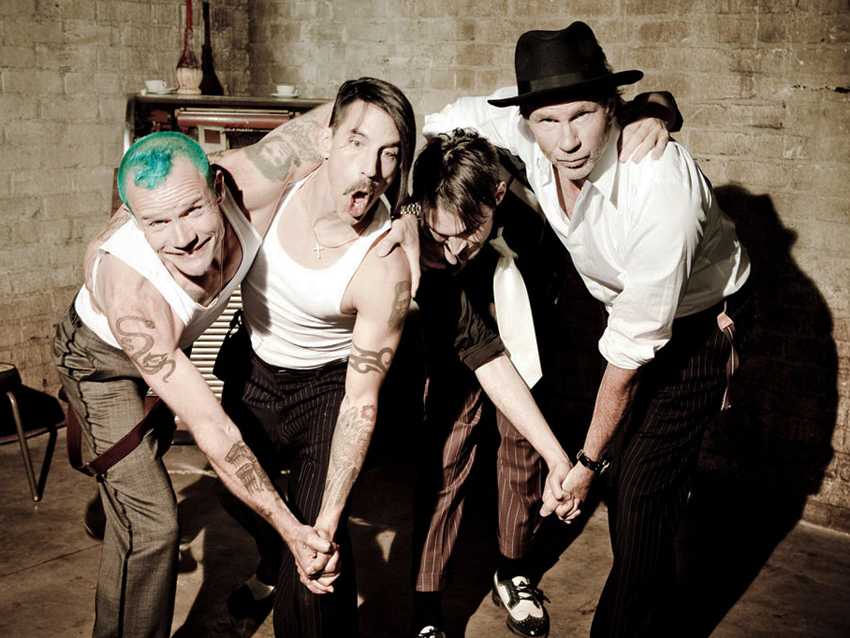
Monarchy Of Roses
A beauty of an opener. Amid scattershot drum fills, roaming bass lines and blasts of guitar feedback, the band tumbles and rolls into a track that, during sessions, was referred to as 'Disco Sabbath.'
Within a few seconds, they establish the verse pattern, that of grinding garage rock driven by Josh Klinghoffer’s belligerent power chords. Anthony Kiedis half-sings a simple yet engaging melody, but it’s the sound of his voice, fed through an overloaded mic that bleeds over the track, that is most appealing.
And bam! we're into dance mode, with Flea's bass sounding like it's backing up Donna Summer circa 1979. Just as quickly, however, we're back inside Klinghoffer's inferno of whacked-out guitar hell, an unrelenting assault of will and impulse.
Count this one a winner.
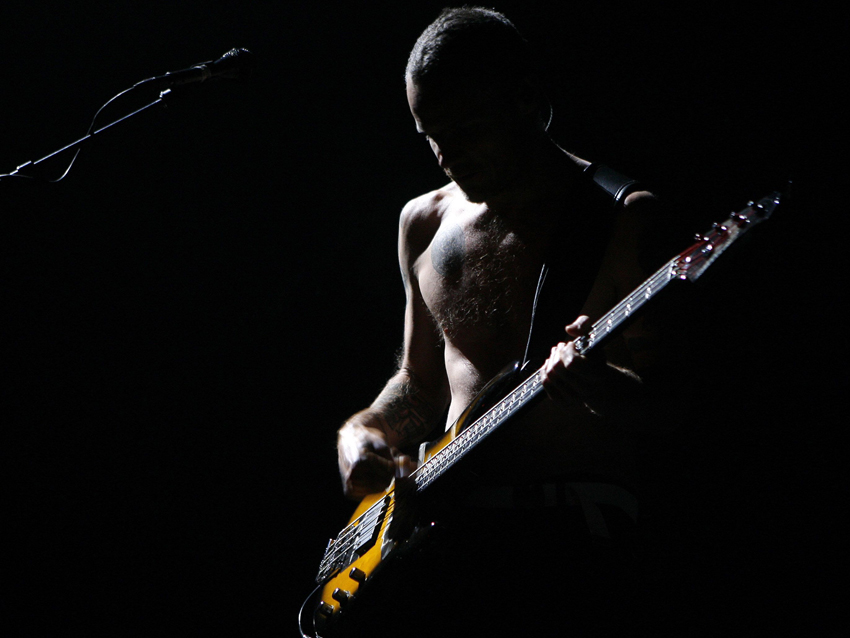
Factory Of Faith
Flea’s authoritative bass playing provides the framework for Factory Of Faith, over which Chad Smith adds muscular and inventive color.
The chorus is like a dream that comes in out of nowhere, but just as soon as it passes Klinghoffer pours on scalding splashes of growling guitar, and he keeps it coming, throughout the next verse and into the following chorus.
The middle eight is a hard charger, with the band digging in and working the groove like nobody's business. The ride-out finds Klinghoffer working double-tracked wah-wahed guitars that bounce around and collide to delirious delight.
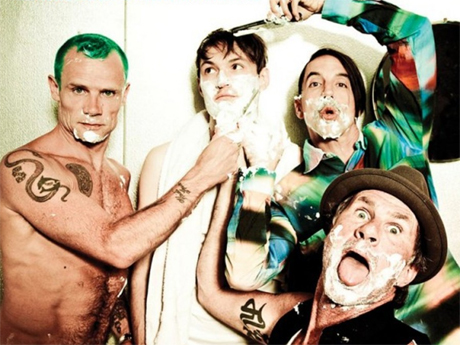
Brendan's Death Song
The first song written for I'm With You was penned for a late friend of the band, Brendan Muller, founder of The Masque, an important part of early LA punk history. It has been described by Klinghoffer as "one part acoustic mourning, part galloping hard-rock send-off."
And he's most accurate, in all righteous meanings. A wondrous track, propelled by Smith's artful tom work and Flea's percolating bass, it contains some of Kiedis' best lyrics ("Like I said, you know I'm almost dead/ you know I'm almost gone/ when drummer drums, he's gonna play my song/ you I'm almost gone").
And yet, it's another showcase for the new guy, who, in the middle section of the song, summons up a veritable exorcism by guitar.
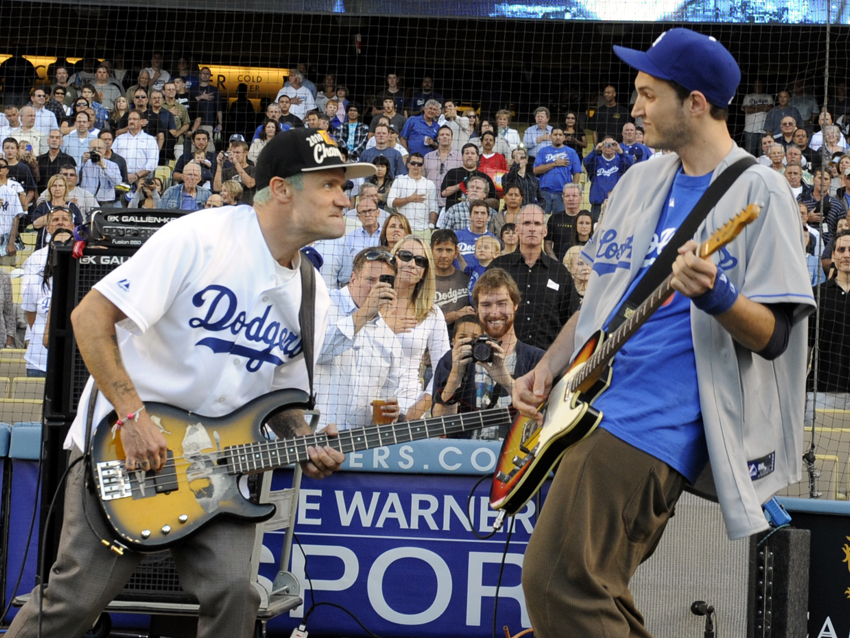
Ethiopia
Reportedly, Ethiophia got its name from a trip that Flea and guitarist Klinghoffer took to the country. In an Italian magazine, Kiedis spoke about the song: "It reflects the new spirituality of the band. Instead of drugs and alcohol, meditation, and injections of ozone, not heroin. Love for children and family. Respect and hope."
Unfortunately, Ethiopia also contains the worst aspect of Kiedis' wordplay, starting with "Eei-eei-oh-eei-eei-ee-aay" and going downhill from there.
Thankfully, the chorus is lush, with Smith playing slightly behind the beat. Soon after, Klinghoffer lets loose with a twisty little double-stop guitar solo. It's nothing fancy, but it does the job, and makes Ethiophia worth the price of admission.
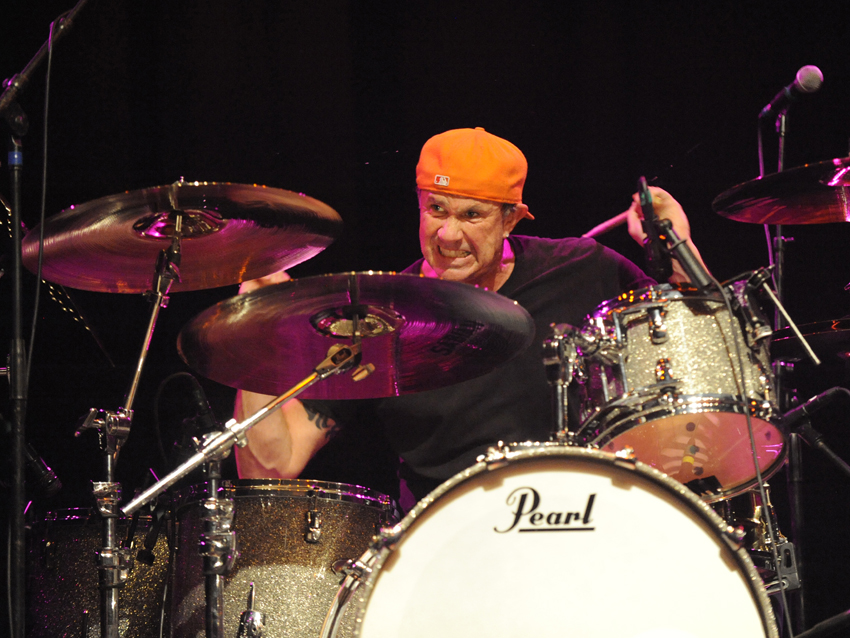
Annie Wants A Baby
Chad Smith's drums are huge on this mood piece that truly transports. During the verses - or are they pre-choruses? - Klinghoffer's trebly guitar arpeggios rise up and crash into a chorus driven by pounding rhythms stabbing at counter melodies.
During the segue and breakdown sections, Klinghoffer plays off of Smith, tearing off gnarly, surf-guitar lines. It's a fascinating interplay, particularly in the soaring solo, which feels like it should go on forever but is over much too fast. Hey - it's gorgeous while it lasts.

Look Around
Amid handclaps and hoopla, this funk party gets underway. Set in a strip club, during which Kiedis pauses to "take a look at my last decision," it's a catchy, bass-popping number, full of sharp guitar bites and stabbing rhythmic turnarounds.
It has been said that Flea spent a good deal of time during the making of I'm With You listening to mid-period Rolling Stones, and it shows: the dance grooves are greasy and intuitive, shaken and stirred.
Klinghoffer gets in a crazed wah-wah guitar workout, during which Flea and Smith practically match him note for note.

The Adventures Of Rain Dance Maggie
According to Kiedis, when he first heard the song's bassline, composed in Flea's kitchen, "I didn't know it would be a single. [But] I knew that I loved the jam."
And what a jam it is. From the Another One Bites The Dust bass part to Smith's infectious use of the cowbell to Klinghoffer's sweet, soaring, Claptonesque bends in the rousing chorus, this is a true classic.
Kiedis' vocal is pushed hard front in the mix, and is usually the case, his lyrics are open to interpretation: "Lipstick junkie be funky all he wanty/ she came back wearing a smile/ look-alike someone drug me/ they wanted to unplug me."
Halfway through, however, Klinghoffer busts out with a sweeping, echo-drenched solo that starts out low, aching and grinding and winds up in the sonic stratosphere.
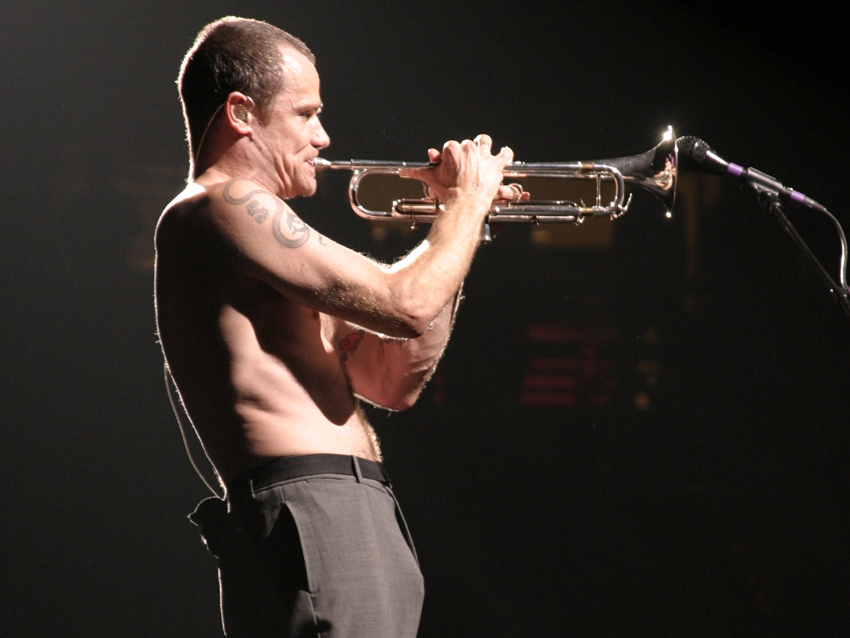
Did I Let You Know
Incongruity rules on this dance rocker which blasts into being with Smith's pounding drums and Klinghoffer's sweet, dreamy soundscapes of jazz chords and melody runs.
Along with guest musician Michael Bulger, Flea gets the spotlight in a spirited trumpet break that simply astounds.
That is, until Klinghoffer's harmonized guitar solo, which is a ginormous earth mover. While he plays, Kiedis bursts out laughing, and one gets the feeling that it's no mere ad-lib or punch-in. He's feeling it!

Goodbye Hooray
A scorching rocker, with one heck of a rhythmic swing. The pace is relentless until the chorus, which pushes things even further. The whole band goes for it.
At first, it seems as if the song will belong to Klinghoffer, who snaps off shards of metallic genius, but by the middle it's all about Flea and his nimble fingers. His spirited solo is a thing of beauty.

Happiness Loves Company
A jangly piano intro, melancholy yet jaunty, gets things underway. So far, so good. But uh-oh...it isn't long before Kiedis does it. That's right, he mentions LA.
"Start jumpin' 'cause we got somethin' to say/ young lovers keep it pumpin' in the streets of LA..."
Background vocals are introduced as percussive elements, building throughout the rest of song, but they can't make up for this unpardonable sin.

Police Station
Pink Floydian atmospherics initiate the proceedings, and after Smith's crackling drums we're into a pining ballad about a faded Hollywood icon.
"What happened to the funny papers/ smiling was your money maker" Kiedis intones in lyrics that could be directed at stars past or present.
After a middle crescendo, the song shifts between hard and soft dynamics, with Klinghoffer bathing the ride-out with sweeping, echoey squalls of sound.

Even You Brutus?
At first, the piano rhythm is reminiscent of ELO's Mr Blue Sky, but before long it gives way to an inviting hip-hop beat, with Klinghoffer punctuating each measure with squawky guitar lines.
The chorus is grand, almost triumphant, and during a breakdown Flea's throbbing bass is pushed to the center of the mix. At the end of the last chorus, Kiedis is joined by a choir that is vaguely reminiscent of the one heard in Under The Bridge. The effect is chilling, it takes you away...and then the song ends abruptly.
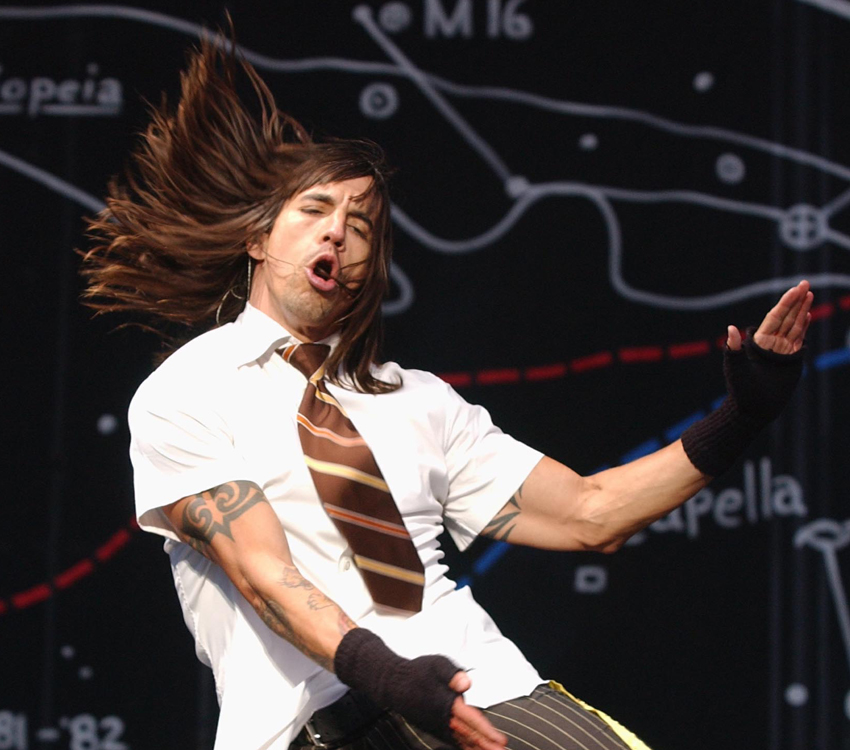
Meet Me At The Corner
A languid groover, peppered by Klinghoffer's clean, jazzy guitar riffs and Smith's inventive drumming, highlighted by his use of the bell on his ride cymbal during the chorus.
Gradually, an organ creeps in, and the song drifts around in search of a true hook. A choir of background vocals overwhelms the bridge, but Kiedis takes hold of the final ride-out and makes the song his own...that is until the real coda, during which Klinghoffer knuckles down with some country licks that indicate that there's more to this boy than just the West Coast.

Dance, Dance, Dance
Flea's effervescent bass and Smith's playful drum patterns drive this album closer, during which Klinghoffer carves out otherworldly guitar textures that dazzle the senses.
"Give yourself a chance to find a way/ tell your mom and dad it's all OK," Kiedis sings free of stylization, scoring an emotional bullseye as if he weren't meaning to.
Midway through, the band breaks into a furious jam, and it's a true moment of unbridled glee, but it's over much too quickly. In the end, the Peppers ride off on a calm wave of reverb. By all indications, we'll see them again. Will it take five years? That's anybody's guess.
Joe is a freelance journalist who has, over the past few decades, interviewed hundreds of guitarists for Guitar World, Guitar Player, MusicRadar and Classic Rock. He is also a former editor of Guitar World, contributing writer for Guitar Aficionado and VP of A&R for Island Records. He’s an enthusiastic guitarist, but he’s nowhere near the likes of the people he interviews. Surprisingly, his skills are more suited to the drums. If you need a drummer for your Beatles tribute band, look him up.
